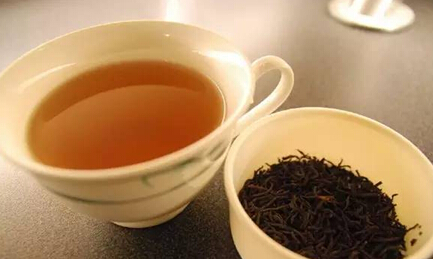Black tea is warm in nature, beneficial for the stomach, and aids digestion, making it suitable for those with weak spleen and stomach. Its health value is quite high. However, the tea leaves from black tea must not be consumed. Why is that?
【Main Text】"The health benefits of black tea are quite significant," said Liu Zusheng, a doctoral supervisor in the Tea Science Department of Zhejiang University.
Generally speaking, different types of tea undergo different processing methods, resulting in distinct biochemical compositions and varying health benefits. Green tea processing, due to the absence of fermentation, retains a higher amount of tea polyphenols, which are the primary functional components in tea, thus offering stronger health benefits. Black tea, being fully fermented, undergoes oxidation where a large amount of tea polyphenols are oxidized. This has led some to mistakenly believe that the health benefits of black tea are significantly reduced.

However, in Liu Zusheng's view, this is only partially correct. When tea polyphenols are oxidized, they produce theaflavins and thearubigins. A series of studies have shown that theaflavins are effective free radical scavengers and antioxidants, with various physiological functions such as anti-cancer, anti-mutation, antibacterial and antiviral properties, improving and treating cardiovascular diseases, and treating diabetes.
Additionally, according to traditional Chinese medicine, black tea is warm in nature, beneficial for the stomach, and aids digestion, making it suitable for those with weak spleen and stomach. However, Liu Zusheng noted that many tea enthusiasts have certain misconceptions about drinking black tea. Firstly, regarding the water temperature for brewing, some tea drinkers, similar to brewing green tea, are accustomed to using 80-degree water. In fact, black tea is best brewed at 90 degrees, and it should not be consumed too hot.

Epidemiological studies have found that long-term consumption of scalding tea may increase the risk of esophageal cancer compared to the general population. Furthermore, some tea drinkers believe that black tea is rich in nutrients and therefore prefer to consume the tea leaves along with the liquid. This is quite dangerous, as tea leaves may contain harmful heavy metals such as lead and cadmium, which are mostly insoluble and remain in the residue.